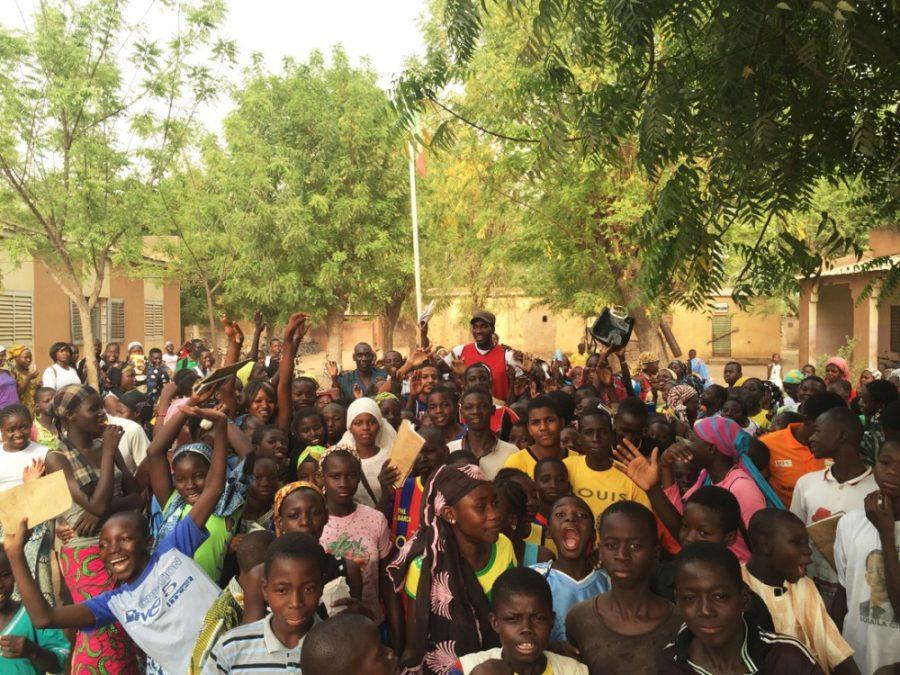It is easy to get caught up in the charmed life of the typical college student and forget those who struggle with basic living necessities. For children in the Republic of Mali, the life that the average 20-year-old has in the U.S. is a far-away luxury that many cannot even imagine.
Rachel Barnitt, a sophomore studying business and engineering, came in touch with the reality Mali children face first hand. Over the past few summers, Barnitt said she and her family housed Mohamed Tangara, a former UA basketball player from Mali.
Tangara is not only a pro basketball player now, but he is also a close family friend of the Barnitts. While he travels around the world playing basketball, Tangara stays close to his roots and frequently visits Mali, working with Malian children. In a press release with All Sports Tucson, Tangara said he tries to use his influence in Mali to benefit the struggling youth.
“I want to have a talk with the youth and use my influence in Mali,” Tangara said in the release. “I can do it by bringing something from the [U.S.] I can talk to them about the [U.S.], give them gifts from the [U.S.] and tell them the [U.S.] is your friend, not your enemy.”
Working with Barnitt, Tangara set a goal of collecting 10,000 UA T-shirts that he can distribute to Malian children when he visits the country. Barnitt took Tangara’s dream and set it into action. As a highly involved honors student, she used her connections with the Honors College to turn Tangara’s goal into reality.
“I am a board member on HCA and thought it would be a great philanthropy opportunity for our club,” Barnitt said.
And while donating T-shirts may seem like a small act, Barnitt said that every bit helps out.
“It is important to send T-shirts to children in Mali because many of the people live in poverty and without access to basic supplies like clothes, as well as being affected by the current problems facing the country of Mali,” Barnitt said. “The country of Mali is facing [a lot] of political, economic and health-related issues. Their schools have limited supplies and resources, and some children are without even basic clothes.”
T-shirts cannot solve the socioeconomic issues plaguing Mali, but they can be the difference between a child in Mali wearing proper clothes or rags. There are clear plans for how to get the shirts to Mali.
“Mohamed [already has] plans to travel to Mali and has connections to schools in Mali that he has worked with in the past,” Barnitt said.
Barnitt noted that the T-shirt drive is also an opportunity to empower Malian children by speaking to them about the possibilities that extend far from their village.
“Mohamed’s profile in Mali has risen significantly this past year after he led the Mali national basketball team to its first win over Senegal in 26 years this past winter,” Barnitt said. “Because of Mohamed’s increased profile, he is seen as a role model to the children. He hopes to influence them positively by speaking with them when he goes to pass out shirts.”
Barnitt will be collecting used UA T-shirts until May 7. She encourages students to attach a short note to each donated shirt as a message to the child receiving it. There are collection bins at the Slonaker House and at Árbol de la Vida Residence Hall in Room C-124 for those interested in donating.
_______________
Follow Lior Attias on Twitter.









